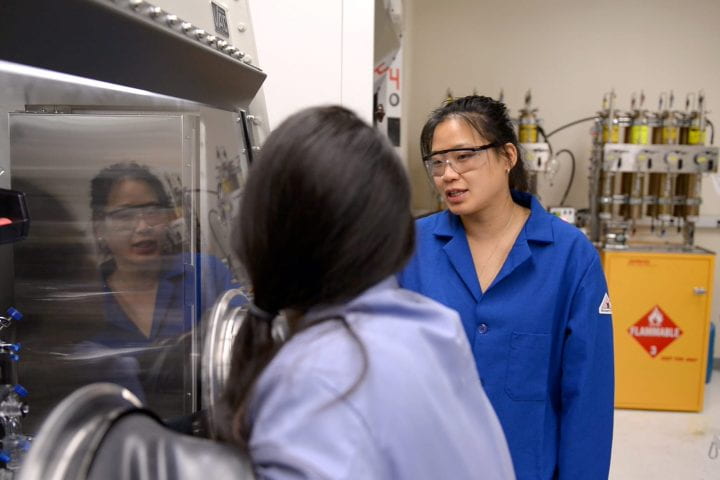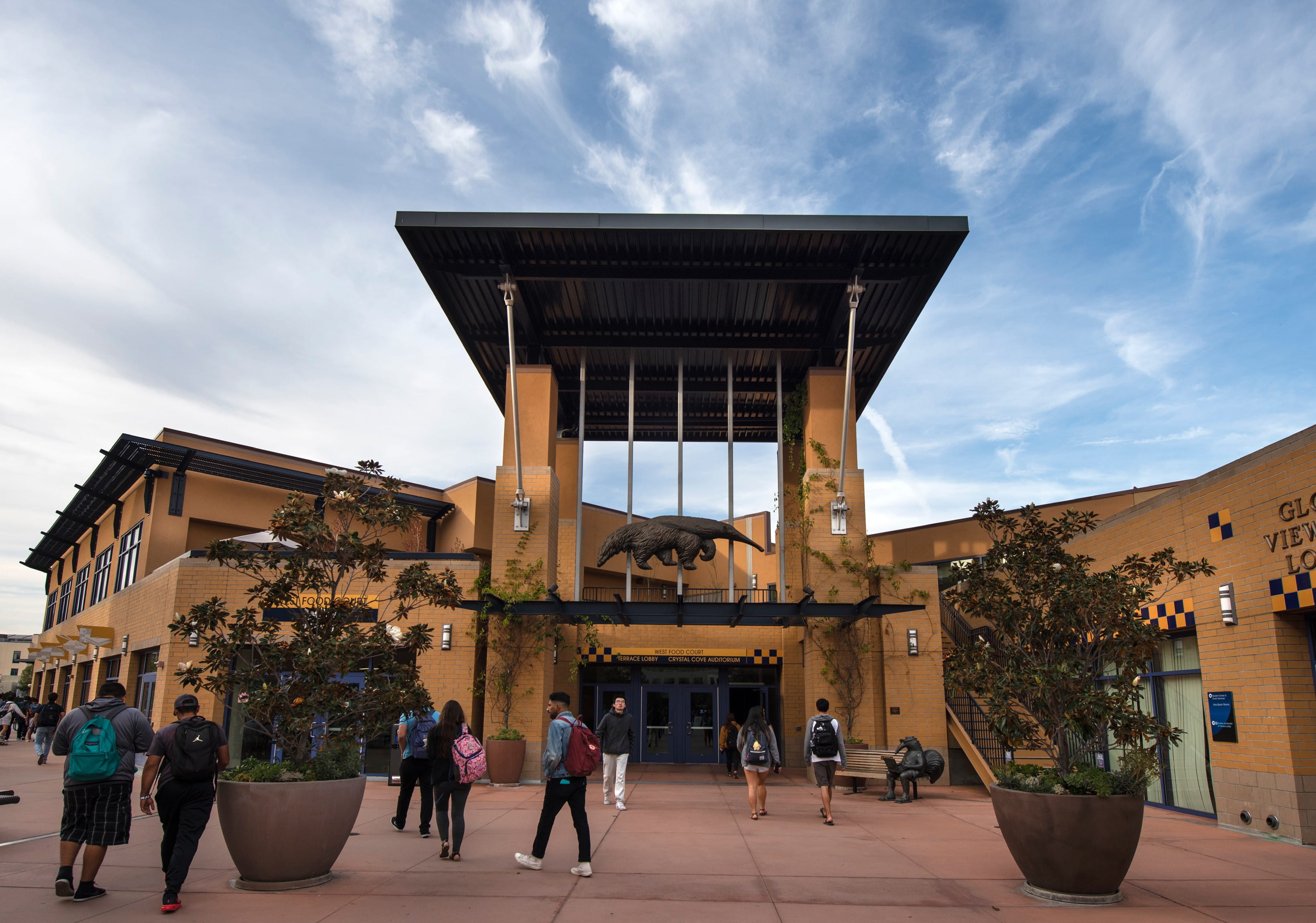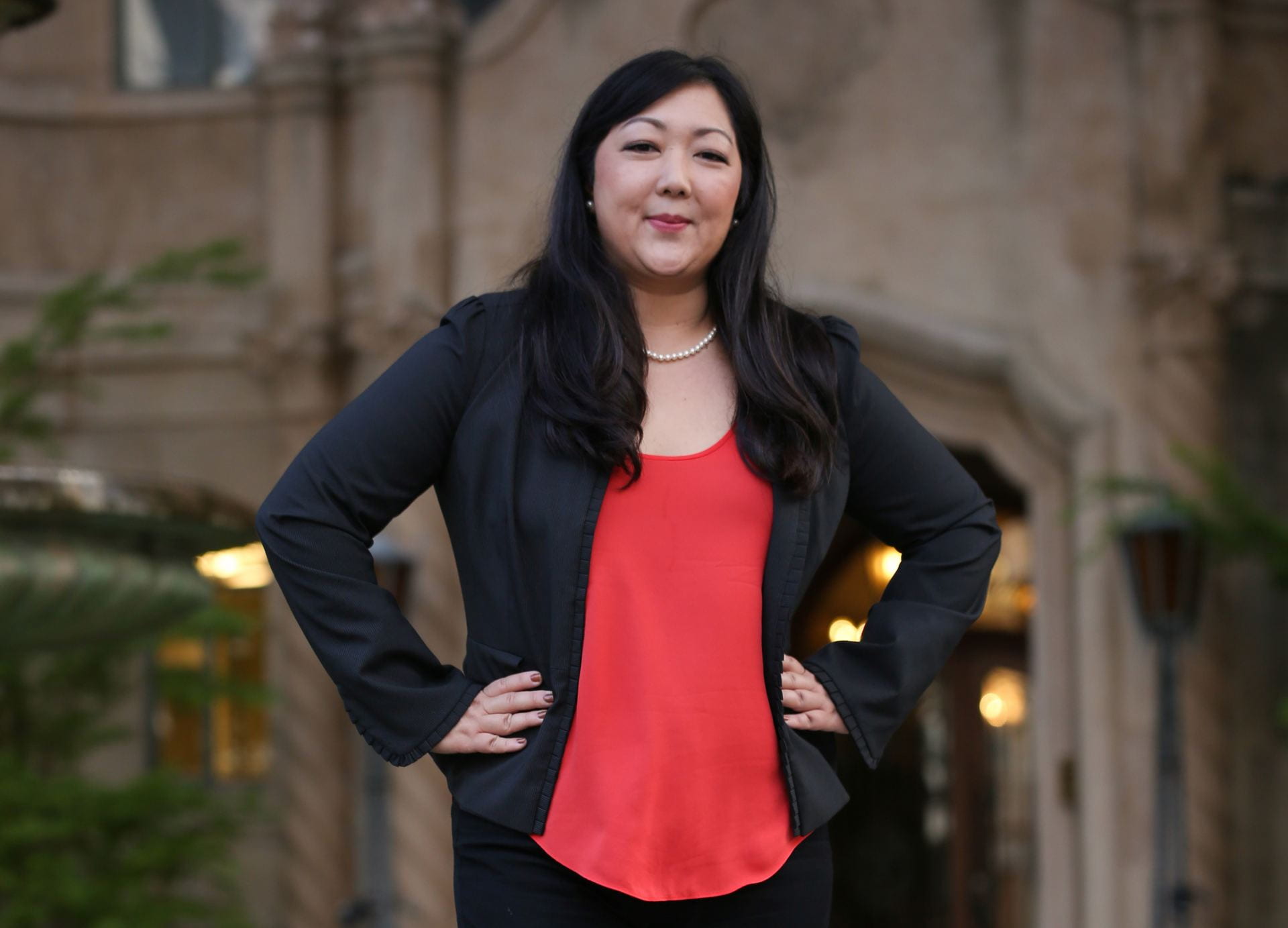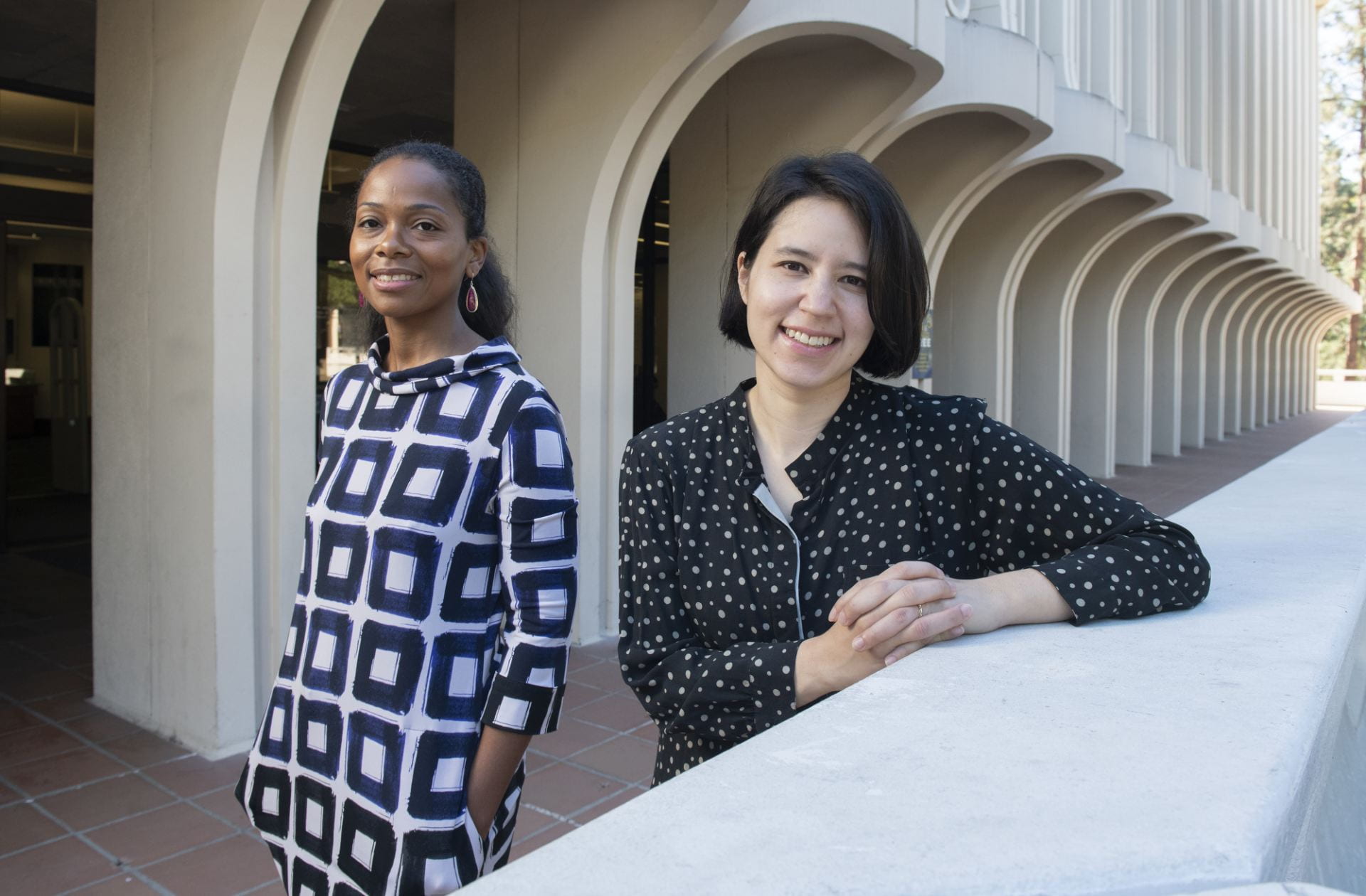Stamping out STEM stereotypes
UC Irvine has long been committed to gender equity in science, technology, engineering and math

When UC Irvine’s Engineering Tower was built in 1970, just two women’s bathrooms were included in the 10-story structure. Architects didn’t see a great need with so few female engineers. Today women and men alike have restrooms on every other floor. It’s a small sign of the concrete steps taken by UC Irvine to ensure that all genders are included equally in science, technology, engineering and math (STEM) pursuits.
Nationally and on campus, female academics still lag behind their male counterparts in the upper levels of science and engineering, with fewer tenured professors, department chairs and deans. But UC Irvine has made major strides over the past decade through strong partner hiring, faculty equity mentors, tenure clock delays, childcare assistance at professional conferences and other programs.
The School of Physical Sciences was recently awarded a $500,000 Clare Boothe Luce grant to recruit two stellar female professors in chemistry or physics because of its commitment to faculty equity. The school’s female faculty hiring rate is now nearly 30 percent, and the number of women on the faculty has doubled in the past 10 years. Similarly, more than half the doctorates awarded last year by the School of Biological Sciences went to women.
“One of the hallmarks of the United States in comparison with other countries is its dedication to broadening participation,” says Douglas Haynes, associate vice provost for equity and diversity. “And we’ve also learned that we can always improve how we recruit and retain faculty at a university. This is particularly true for women in science at UC Irvine. We’ve made a significant commitment, and the campus has taken it as a real opportunity to effect change.”
As several generations of female scientists on campus recently shared, there is room for more improvement and great hopes that this will occur.
“Computer science is still a heavily male-dominated field; in fact, women earn less than 13 percent of bachelor’s degrees in this field at research universities,” says informatics professor Debra Richardson, who was founding dean of the Donald Bren School of Information & Computer Sciences. “I’m proud that we’re a bit better: Our 2013 freshman class is 29 percent female, up from 10 percent a decade ago.”
When she was selected in 2000 to head the information and computer sciences department that preceded the school, some male faculty members were resistant. “When I became chair, there was certainly some apprehension about having a woman at the helm,” she says. “I just let things roll off my back and simply continued to do the best job I could.”
Richardson quickly faced another tough issue. At one of her first meetings with all UC Irvine deans, a list of courses across campus with the highest failure rates was distributed. Introductory computer programming topped the list. Richardson thought she knew at least part of the reason. Many bright young women took the class, but coursework often required working alone, and assignments involved such subjects as football and NASCAR racing.
She persuaded faculty to make changes, including a new teaching technique known as “pair programming” that’s still used. Students are matched up one-to-one and switch between the roles of coder and observer, which helps lessons stick more than hearing them in a traditional classroom setting. Changes also included more inclusive teaching examples. Passing rates immediately rose sharply and have stayed high.
There are still challenges, Richardson notes, “but we have a lot of excellent women faculty in ICS now. They provide strong role models for young women exploring the field.”
She, Haynes and others credit former interim executive vice chancellor and biological sciences dean Susan Bryant with obtaining a $3.5 million grant from the National Science Foundation for 2001 to 2006 to increase female faculty in STEM areas.
“We’re a relatively young campus, and unlike mature campuses, we’re always growing, always hiring faculty. Our goal has been to create hiring processes that broaden our pool of highly talented applicants,” Haynes says. “We’ll have not only terrific science but also wonderful role models for our female undergraduates.”
It can be tough to recruit female faculty, not just because of sometimes unconscious internal biases but because many of the best and brightest deliberately seek alternate careers. Like other highly qualified female researchers, associate professor of engineering Szu-Wen Wang initially chose to work for a private company after earning a doctorate at Stanford University. She and her husband thought it would be easier to stay in the same geographic location than attempt to gain two university posts.
Achieving tenure is a grueling, multiyear process involving teaching, conducting breakthrough research, and attending conferences to present findings and gain the respect of peers worldwide. Working long hours seven days a week is not unusual. Wang cites one common obstacle: “Women are trying to earn tenure at the same time in life when they’re trying to start a family.”
The University of California, however, allows new parents to stop the demanding tenure clock for a year. She utilized that and other policies.
Wang came to UC Irvine under the “faculty career partners” program, which recruits gifted couples. Her husband, Jonathan Feng, is a professor of physics & astronomy here. Haynes says studies show that many female scientists have partners who are also academics. Potential faculty pairs go through the same Academic Senate review and every other step to be hired. Funding for such positions is shared by the provost’s office and the new hires’ schools.
In addition to the formal programs, Wang says, her former graduate adviser persuaded her to “make the leap” back to academia in 2004. Encouragement and support from faculty in her department, chemical engineering & materials science, convinced her to stay. Today Wang heads a laboratory that engineers biomimetic synthetic materials that provoke the body’s own natural responses to fight disease. With two young sons now, she and her husband are still juggling, but both are tenured.
When Jenny Yang received her doctorate in 2007, she also opted not to pursue an academic career at a research university. Instead, the promising young chemist went to work for a federal laboratory. Then UC Irvine recruited her. Physical sciences dean Kenneth Janda, senior faculty and others made it clear that they wanted the up-and-coming Yang’s talents. They also explicitly told her about the campus commitment to women and work-life balance. Last July, the Chatsworth native set up shop on the third floor of Reines Hall.
“I’m so happy to be back in Southern California. The science is rigorous, and I feel comfortable here,” Yang says. “I really like synthesis, making new molecules and seeing how they react. That’s the very exciting part of chemistry for me – making things that haven’t been made before and showing new things to the world.”
She says that besides research, “your primary role with your students and postdocs is to mentor them and teach them how to be independent- thinking, successful scientists. The women I see getting chemistry degrees now are a really great group of young people who are excited about their careers and their future and are really excited about their science. So it’s very promising.”
On a late February afternoon, second-year UC Irvine undergraduate Rachel Weiner presides over a classroom of noisy Brownies from Troop 1185 in Irvine, teaching the young girls how to “hack” toys like littleBits. She helps them plug batteries, fans and plastic pieces onto circuit boards. They shriek with glee when they get the fans whirring and the lights blinking.
The computer science and informatics major says “there are definitely still challenges.” A young man in her coding class clearly doesn’t think she can do the work, Weiner says, and she has watched her mother, a successful computer scientist in the private sector, face workplace sexism. “Here at UCI, having a Women in Information & Computer Sciences club really gives me a good, supportive community, though,” Weiner says.
Across the room, mother Nazish Hamid sees a bright future for her two daughters. “They’ve been playing with complicated circuit boards and Legos at home since they were little,” she notes. “Programs like this are great.”
Looking at her younger daughter, Sana, she says, “I show her the way, and she reaches out and does it. There’s no difference between her and a boy. If she would like to grab an opportunity, it’s hers to take. It’s wonderful!”


